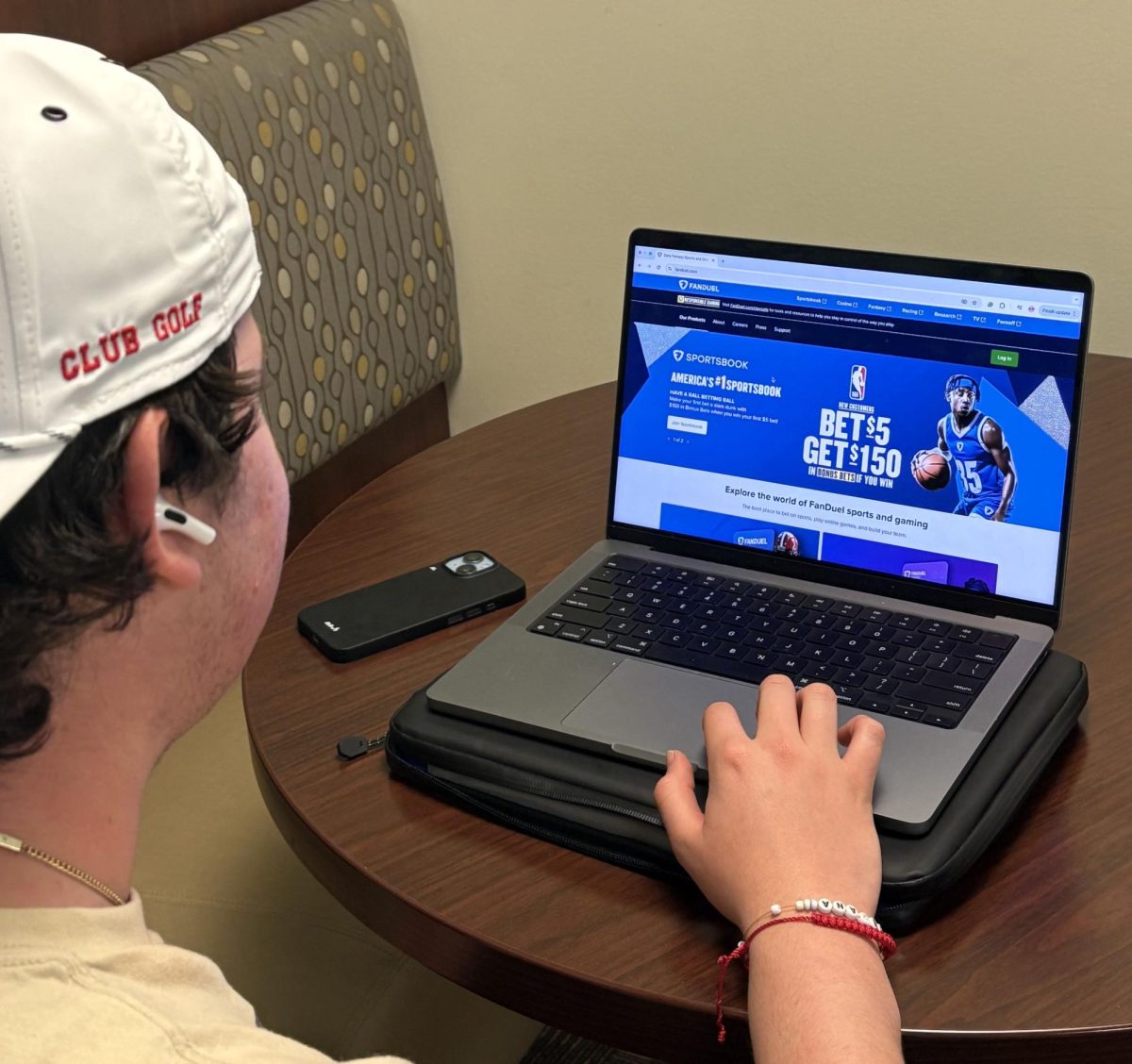Ainsley Mathieu is sitting on a couch in her friend’s dorm intently watching a football game. Even though she doesn’t know anything about the players, she is extremely invested in each pass, fumble and touchdown. She glances between her phone and the TV screen watching to see if her bet will hit.
Mathieu is one of the many SMU students who sports gamble. Although it’s illegal in Texas, people across the state use countless different apps to sports bet on anything from the winner of a coin flip to how many passes a player has. Now, Senate Joint Resolution 16 will try to change that. SJR 16 would amend the Texas constitution legalizing sports betting, gambling and casinos. This legalization would provide economic benefits for Texas but many people are hesitant about the effects of gambling.
In 2018, the Supreme Court struck down a 1992 federal court law and in doing so left sports gambling laws up to the states. Overturning The Professional and Amatuer Sports Protection Act opened the doors for betting on mobile devices and online. Since then, more than 30 states have legalized it. With the continued development of technology, sports betting apps have become extremely popular.
Mathieu uses an app with a free deal that offers her a dollar every day. This has resulted in her only betting one or two dollars per game. Despite this she still feels it enhances her experience.
“The first time I bet, it got me so into the game,” said Mathieu. “It made it ten times more fun.”
Sophomore Layne Dowdy grew up playing and watching sports. When it comes to sports betting, he enjoys rooting for specific players.
“Being like ‘Oh, I only need him to get three more yards,’” said Dowdy. “It’s a fun way to get more tuned into the game.”
Although the entertainment aspect provides a large benefit of legalizing sports gambling, the economic benefits are another added plus. The American Gaming Association estimates that sports betting brings in $22.4 billion in gross domestic product, along with the possibility of generating $8 billion in taxes.
Despite the economic and social positives of sports betting, there are also hesitations. For a long time, Texas has stood as an anti-gambling state. Part of this is due to the addiction problems that come with legalized gambling.
Jerry Bauerkemper was the Executive Director of the Nebraska Council on Compulsive Gambling and now sits on the board of the Texas Coalition for Problem Gambling. He urges people to be aware of how big of a problem gambling addiction is in the U.S.
“5% to 7% of the population will have a gambling problem over the course of their lifetime,” said Bauerkemper.
Bauerkemper also discussed how the culture around sports betting has changed. Although in the past people have always gambled on sports through bookies, it is now more accessible to a younger audience due to sports betting apps.
“Before when you were 21, you could bar crawl, now you sports gamble,” Bauerkemper said. “It’s an accepted right of passage.”
Bauerkemper stated that if the legalization of sports betting got through, then he would push for part of the income made from sports gambling to go back into fighting addiction.
“Texas Coalition on Problem Gambling would advocate that 2% or 3% of the tax revenue go towards prevention, treatment and research for those people who have gambling issues,” Bauerkemper said.
SJR 16 was read for the first time on Feb. 2 2025 and has since been referred to the Senate State Affairs Committee to be reviewed. As the senate joint resolution is pending in the committee Texas stands at a crossroads. Students like Mathieu and Dowdy continue to enjoy the pastime while others argue over the morality of gambling. Whether or not SJR 16 passes, the conversation around sports gambling is far from over. Texans will have to decide if the economic and entertainment benefits are worth the risk of addiction.
Bauerkemper urges people struggling with a gambling addiction to call 800-GAMBLER.










